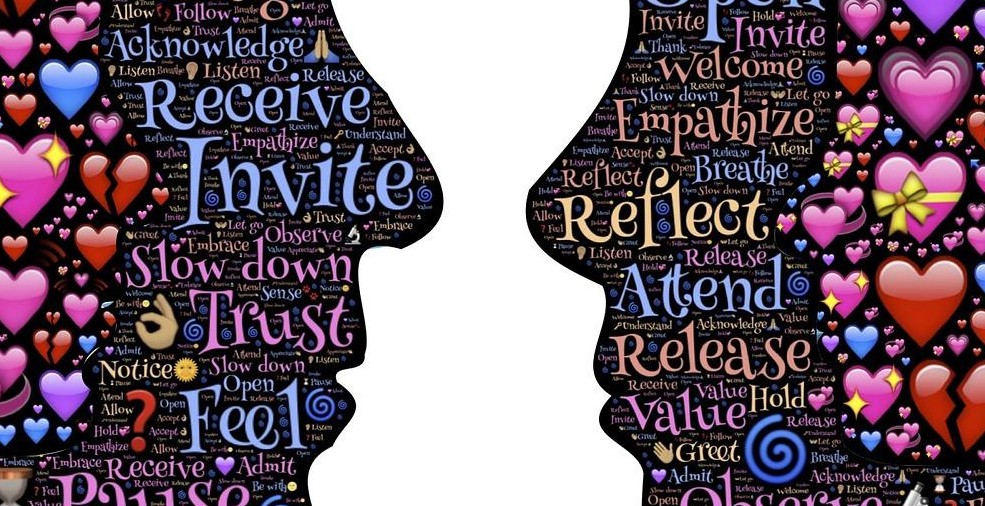The Impact of Gratitude on Well-Being: Fostering Positivity
Gratitude is a powerful emotion that has a profound impact on our well-being and overall happiness. The act of expressing gratitude involves acknowledging and appreciating the good things in our lives, whether big or small. It is a practice that has been embraced by cultures and religions throughout history, and its benefits are backed by scientific research.
When we cultivate gratitude in our lives, it has the potential to transform our mindset and outlook. By focusing on the positive aspects of our experiences, we shift our attention away from negativity and cultivate a sense of contentment and fulfillment.
Research has shown that gratitude can have a multitude of benefits for our mental, emotional, and physical well-being. It has been linked to increased happiness, reduced stress levels, improved relationships, enhanced self-esteem, and even better sleep quality. Grateful individuals tend to have a more optimistic perspective, are more resilient in the face of challenges, and experience greater overall life satisfaction.
This article explores the profound impact of gratitude on well-being and how fostering a practice of gratitude can lead to a more positive and fulfilling life. We will delve into the scientific evidence supporting the benefits of gratitude, practical ways to cultivate gratitude in our daily lives, and the ripple effects it can have on our relationships, mental health, and overall happiness.
Understanding Gratitude
Gratitude, often referred to as a state of thankfulness, is a powerful emotion that goes beyond simply saying “thank you.” It is a deep appreciation for the people, experiences, and things in our lives that bring us joy and fulfillment. Gratitude is a fundamental aspect of human nature and has been recognized for centuries as a virtue across various cultures and religions.
What is Gratitude?
Gratitude is the act of acknowledging and recognizing the goodness in our lives. It involves being present and mindful of the positive aspects, no matter how big or small, and expressing appreciation for them. It is a way of shifting our focus from what we lack to what we have, cultivating a positive outlook on life.
Gratitude is not just about being thankful for the good times; it also involves acknowledging the challenges and difficult moments we face. It is about finding lessons and growth opportunities in adversity and appreciating the strength and resilience we gain from them.
The Science Behind Gratitude
Research in the field of positive psychology has shown that practicing gratitude has numerous benefits for our well-being. It has been linked to increased happiness, improved mental health, and enhanced relationships.
When we express gratitude, our brain releases dopamine and serotonin, neurotransmitters associated with pleasure and well-being. This release creates a positive feedback loop, making us more inclined to seek out and appreciate the good in our lives.
Gratitude also helps us reframe negative experiences and emotions, fostering resilience and reducing stress. It shifts our focus from dwelling on problems to seeking solutions, leading to a more optimistic and positive mindset.
Furthermore, cultivating gratitude strengthens our social connections and enhances our relationships. Expressing appreciation towards others not only makes them feel valued and appreciated, but it also strengthens the bond between individuals, fostering trust and empathy.
In summary, gratitude is a powerful practice that can positively impact our well-being. By cultivating a grateful mindset, we can experience increased happiness, improved mental health, and stronger relationships.

Benefits of Practicing Gratitude
Practicing gratitude is more than just saying “thank you” – it is a powerful tool that can have a profound impact on our overall well-being. By cultivating a habit of gratitude, individuals can experience a wide range of benefits that positively influence their mental, physical, and emotional health.
Improved Mental Health
Gratitude has been found to be strongly associated with improved mental health. Regularly expressing gratitude can enhance positive emotions, reduce symptoms of depression and anxiety, and increase overall life satisfaction. It helps individuals focus on the present moment, fostering mindfulness and promoting a sense of inner peace.
Enhanced Physical Well-being
Practicing gratitude has been linked to numerous physical health benefits. Studies have shown that grateful individuals tend to engage in healthier behaviors, such as regular exercise, eating a balanced diet, and getting quality sleep. This leads to improved immune function, lower blood pressure, reduced inflammation, and a decreased risk of chronic diseases.
Strengthened Relationships
Gratitude plays a vital role in building and maintaining strong relationships. Expressing appreciation towards others not only enhances their well-being but also strengthens the bond between individuals. Grateful individuals are more empathetic, forgiving, and compassionate, leading to healthier and more fulfilling relationships with friends, family, and colleagues.
Increased Resilience
Gratitude acts as a protective factor against stress and adversity, fostering resilience. When faced with challenges, individuals who practice gratitude are better equipped to find positive aspects, learn from setbacks, and bounce back stronger. Grateful individuals have a more optimistic outlook on life, enabling them to navigate through difficult times with greater ease and grace.
Overall, incorporating gratitude into our daily lives can have a transformative effect on our well-being. By recognizing and appreciating the positive aspects of our lives, we can experience improved mental health, enhanced physical well-being, strengthened relationships, and increased resilience.

Ways to Cultivate Gratitude
Gratitude is a powerful emotion that can significantly impact our well-being and foster positivity in our lives. By cultivating gratitude, we can enhance our mental and physical health, improve relationships, and increase overall happiness. Here are some effective ways to cultivate gratitude:
1. Keep a Gratitude Journal
One of the most popular ways to cultivate gratitude is by keeping a gratitude journal. Take a few minutes each day to write down three things you are grateful for. This practice helps shift your focus to the positive aspects of your life and encourages a grateful mindset.
2. Express Appreciation to Others
Show your gratitude to others by expressing appreciation for their actions, kindness, or support. A simple “thank you” can go a long way in strengthening relationships and spreading positivity. Whether it’s a handwritten note, a heartfelt conversation, or a small gesture of gratitude, make an effort to acknowledge and appreciate those around you.
3. Practice Mindfulness
Mindfulness involves being fully present and aware of the present moment. Incorporate gratitude into your mindfulness practice by focusing on the things you are grateful for. Pay attention to the sights, sounds, and sensations that bring you joy and appreciation. This practice helps cultivate a sense of gratitude and increases your overall well-being.
4. Engage in Acts of Kindness
Engaging in acts of kindness not only benefits others but also fosters gratitude within ourselves. Look for opportunities to help someone in need, volunteer your time, or perform random acts of kindness. By extending kindness to others, we become more aware of the blessings in our own lives and develop a deeper sense of gratitude.
By incorporating these practices into your daily life, you can cultivate gratitude and experience the positive impact it has on your well-being. Start small, be consistent, and watch as gratitude transforms your perspective and brings more joy and positivity into your life.

Gratitude in Different Areas of Life
Practicing gratitude is an effective way to foster positivity and enhance overall well-being. It has the power to transform various aspects of our lives, including the workplace, relationships, parenting, and personal growth.
Gratitude in the Workplace
In a professional setting, expressing gratitude can significantly impact employee morale and productivity. Recognizing and appreciating the efforts of colleagues and team members creates a positive work environment, fostering collaboration and boosting motivation. Gratitude also helps to reduce stress levels and improve job satisfaction, leading to higher levels of engagement and overall well-being.
Gratitude in Relationships
Gratitude plays a vital role in nurturing healthy and fulfilling relationships. Expressing appreciation towards our partners, friends, and family members strengthens the bond and deepens emotional connections. Regularly acknowledging the kindness and support we receive from loved ones can create a positive cycle of gratitude, fostering a harmonious and loving environment.
Gratitude in Parenting
Practicing gratitude as parents can have a profound impact on our children’s well-being and overall development. By expressing gratitude for their achievements, efforts, and even small gestures, we can build their self-esteem and instill a sense of appreciation. This helps create a positive and nurturing family dynamic, fostering emotional growth and resilience in our children.
Gratitude in Personal Growth
Gratitude is a powerful tool for personal growth and self-improvement. By cultivating gratitude, we shift our focus towards the positive aspects of our lives, fostering a sense of contentment and satisfaction. This mindset not only enhances our mental and emotional well-being but also opens doors to new opportunities and personal development.
Gratitude has the potential to transform every aspect of our lives. By incorporating gratitude practices into our daily routines, we can create a ripple effect of positivity, fostering well-being and happiness in ourselves and those around us.
Conclusion
Gratitude is a powerful tool that can have a profound impact on our well-being. By fostering positivity and shifting our focus towards appreciation, we can experience numerous benefits in various aspects of our lives.
Research has shown that practicing gratitude leads to improved mental health, reduced stress levels, and increased overall happiness. It enhances our relationships by promoting empathy, kindness, and a deeper connection with others. Moreover, gratitude helps us navigate through challenging times with resilience and optimism.
Implementing gratitude into our daily routines is relatively simple. We can start by keeping a gratitude journal, where we write down things we are thankful for each day. Expressing gratitude towards others through kind gestures or heartfelt words can also have a significant impact on our well-being.
It is important to note that gratitude is not just a fleeting emotion; it is a mindset that can be cultivated over time. By consistently practicing gratitude, we can rewire our brains to focus on the positives in life and develop a more optimistic outlook.
Incorporating gratitude into the workplace can also yield substantial benefits. It improves employee satisfaction, engagement, and productivity, ultimately leading to a more positive work environment. Employers can encourage gratitude practices by implementing recognition programs, fostering a culture of appreciation, and promoting acts of kindness among colleagues.
Overall, the impact of gratitude on well-being is undeniable. By embracing an attitude of gratitude, we can enhance our mental and emotional well-being, strengthen our relationships, and create a more positive and fulfilling life.
References
Academic Journals
1. Emmons, R. A., & McCullough, M. E. (2003). Counting blessings versus burdens: An experimental investigation of gratitude and subjective well-being in daily life. Journal of Personality and Social Psychology, 84(2), 377-389. doi:10.1037/0022-3514.84.2.377
2. Wood, A. M., Froh, J. J., & Geraghty, A. W. (2010). Gratitude and well-being: A review and theoretical integration. Clinical Psychology Review, 30(7), 890-905. doi:10.1016/j.cpr.2010.03.005
3. Watkins, P. C., Woodward, K., Stone, T., & Kolts, R. L. (2003). Gratitude and happiness: Development of a measure of gratitude, and relationships with subjective well-being. Social Behavior and Personality: An International Journal, 31(5), 431-451. doi:10.2224/sbp.2003.31.5.431
Books
1. Emmons, R. A. (2007). Thanks!: How the New Science of Gratitude Can Make You Happier. Boston, MA: Houghton Mifflin Harcourt.
2. Sansone, R. A., & Sansone, L. A. (2010). Gratitude and Well Being: The Benefits of Appreciation. Psychiatry (Edgmont), 7(11), 18–22.
Online Articles
1. Harvard Health Publishing. (2019). Giving thanks can make you happier. Retrieved from https://www.health.harvard.edu/healthbeat/giving-thanks-can-make-you-happier
2. Greater Good Magazine. (n.d.). The Science of Gratitude. Retrieved from https://greatergood.berkeley.edu/article/item/the_science_of_gratitude
Scientific Studies
1. Algoe, S. B., & Haidt, J. (2009). Witnessing excellence in action: the ‘other-praising’ emotions of elevation, gratitude, and admiration. The Journal of Positive Psychology, 4(2), 105-127. doi:10.1080/17439760802650519
2. Grant, A. M., & Gino, F. (2010). A little thanks goes a long way: Explaining why gratitude expressions motivate prosocial behavior. Journal of Personality and Social Psychology, 98(6), 946-955. doi:10.1037/a0017935
3. Lyubomirsky, S., Sheldon, K. M., & Schkade, D. (2005). Pursuing happiness: The architecture of sustainable change. Review of General Psychology, 9(2), 111-131. doi:10.1037/1089-2680.9.2.111
